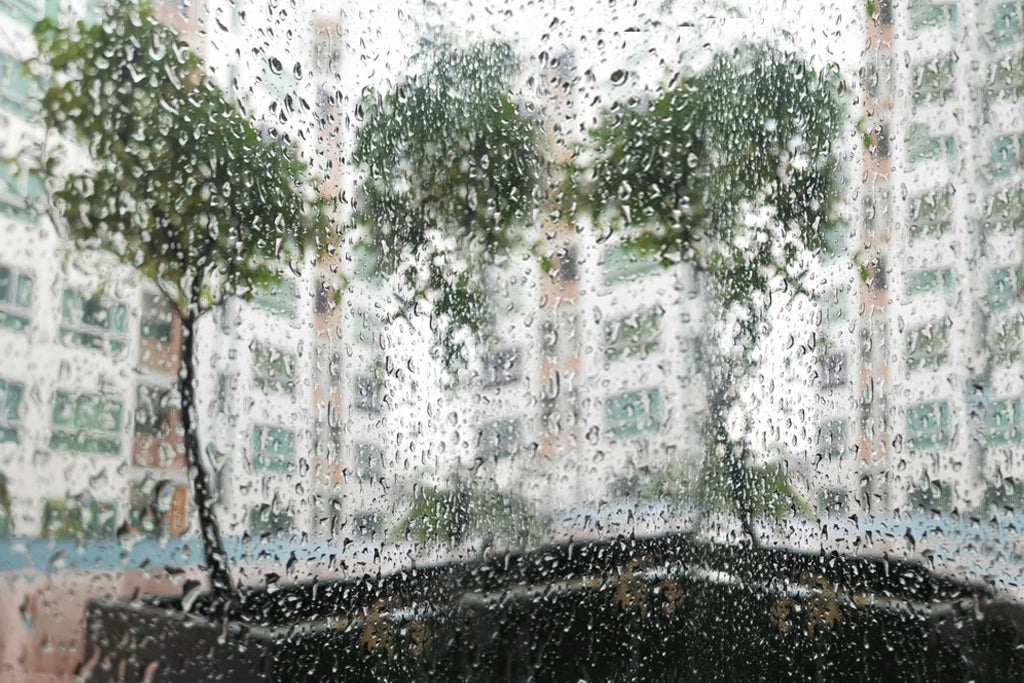Hair Care Tips for a Humid Climate

A while ago, we shared with you ‘Hair Care Tips for a Dry Climate’. Now we want to offer some help for those of us living in, well, not so dry climates. Humidity can take its toll on our hair in many different ways, whether that means excess frizz, hair that won’t stop puffing out or even oily, tangled strands scattered everywhere!
What is Considered a Humid Climate?
A humid climate is when there is an excess of moisture in the air. This happens when there isn’t enough solar energy available to evaporate all of that excess water, resulting in wet, damp air. And there are two different types of humid climates to consider as well: polar humidity, which is when the air is colder and there is a presence of permafrost in the area; and phreatic, or hot, humidity, which is when all that excess moisture seeps through soil, vegetation and your hair. But not to worry. We’ve come up with a short list of tips that will help you have some of your best hair days on even the wettest days.
Make Sure to Moisturize
But I thought humidity meant water was in the air? Why would I need to moisturize if it’s already wet outside? Well, here’s the thing: our hair loves water. So much so that if we don’t moisturize it enough before we go outside it will absorb water from the air - which causes limp or frizzy hair.
Taking time to moisturize with shampoo and conditioner will help to lock in moisture and help to keep moisture from the air out. And unlike those of us living in a drier climate, it’s best to space out how often you shampoo your hair. Shampooing your hair more often in a more humid environment will reduce the amount of oil in your hair, causing limp or even frizzier hair. Allowing your scalp to create its natural oils will help you keep volume as well as to reduce all that wear-and-tear of humidity.
But if you are still seeing a lot of frizz in your strands, or your hair is limp and lacking volume, don’t be shy to condition the ends and tips of your hair a couple more days out of the week. This will help to keep volume and lock in moisture without removing oil from your scalp. You can also consider other remedies like leave-in conditioners, anti-frizz products, or using a moisturizing masque once a week.
Rinse with Cold Water
In a way, our hair conducts like metal. The cuticles in our hair close and open depending on the amount of heat we add to it. If your cuticles are hot and open, they are more likely to absorb excess moisture and lose composure. Rinsing with colder water will keep your cuticles closed and help you to keep your hair from absorbing unwanted moisture.
Be Careful with How You Dry Your Hair
How we choose to dry our hair in a humid climate can often be the make or break point of whether we’re going to have a hair day or not. Choosing to allow your hair to dry on its own while dabbing or squeeze drying with a towel will help to reduce loose strands and to help keep your hair together and voluminous. Roughing your hair up with a towel when you get out of the shower will only leave a moppy, out-of-control mess.
Also try to do your best to avoid using a blow-dryer. Using extra heat to dry your head can help in creating volume if you use lightly on your roots. But using throughout your entire head will just result in more puff and frizz.
Longer Hair is Easier to Manage
It is a common misconception that shorter hair is better and easier for a humid climate. This is false. Shorter hair is actually more likely to lose its form and get puffy throughout the day. Instead, grow your hair out. The weight from the extra strands help to reduce the puff. Longer hair also allows for you to add more layers, creating more options and control when styling.
If Nothing Else, Where Your Hair Up
And if nothing else seems to be working, or you just don’t have time to work with your hair one morning, wear it up in a relaxed ponytail or bun. This is easier to manage and will stop your hair from getting too frizzy or getting too puffy. As a bonus, it will also cut down on the amount of stress put on your roots by other hair styles.
We hope these hair care tips for a humid climate help you to tame even the messiest hair on the wettest days. Living - or evening visiting - a humid area is a battle and balance of having the right amount of moisture in your strands and these tips should help you to take control.
Be sure to check our catalogue of natural ingredient based and chemical free products. We specialize in hair growth, recovery and maintenance.
